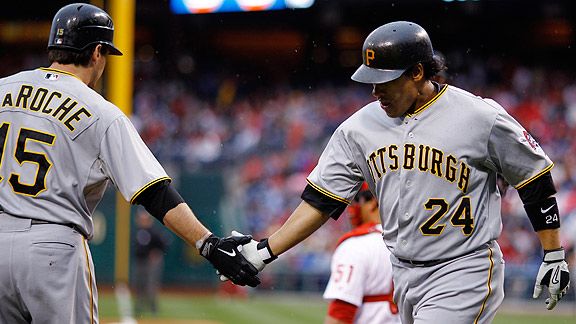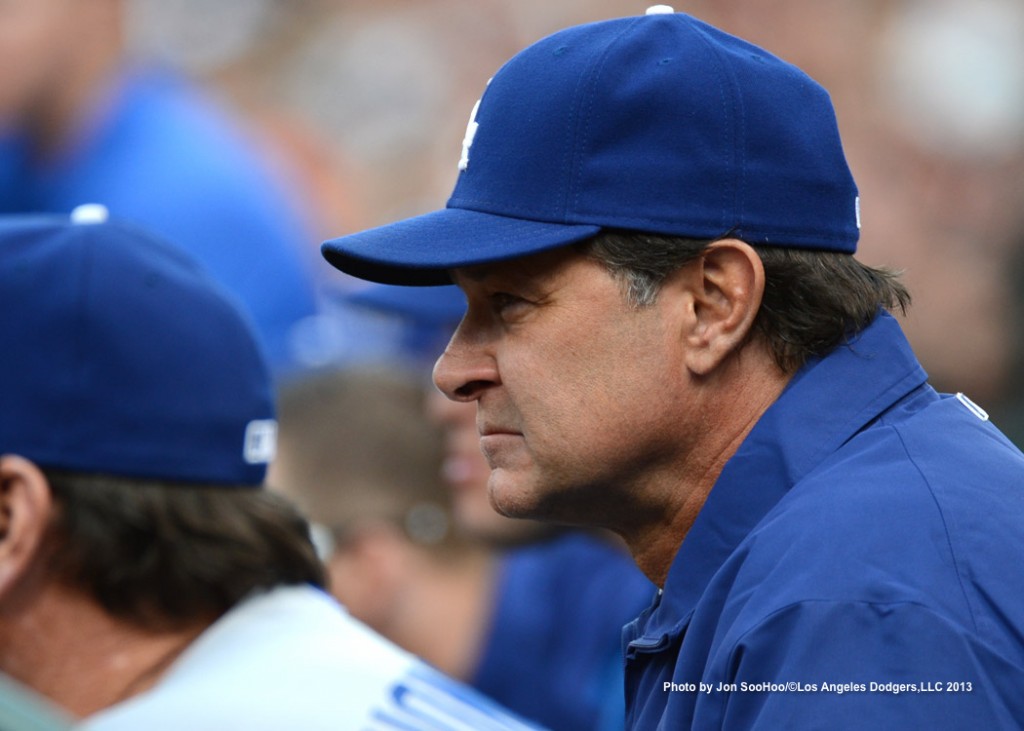 Seven thoughts about Don Mattingly, 13-19 this season, 181-174 in his career:
Seven thoughts about Don Mattingly, 13-19 this season, 181-174 in his career:
1) Setting up a homecoming for the longtime Yankee great, the Dodgers are scheduled to make their first regular-season visit ever to Yankee Stadium on June 18. However, if the Dodgers continue to flounder – this is the earliest they have had two six-game losing streaks since, of all things, the sinking of the Titanic, notes Ken Gurnick of MLB.com – you can expect to see a rising chorus calling for Mattingly to attend that game only as a fan.
2) At the outset, let’s stipulate that there are reasons to fire Mattingly and reasons not to – just as there are reasons one might expect the Dodgers to and reasons not to.
3) Mattingly has always made some confounding things decisions as manager, from bullpen management to strategic choices on offense. That distinguishes him from … practically no one. Few managers in history have ever been immune from fans thinking they could do better. That doesn’t mean you can’t do better, but until the Dodgers are ready to hire one of those fans, there’s probably not a huge potential for improvement here.
4) Mattingly deserves at least something of a mulligan for the state of his roster. For all the talk about how the Dodgers had more pitching than they could handle at the start of the season, the facts are these. He has only had 2 1/2 effective starting pitchers (Clayton Kershaw, Hyun-Jin Ryu and the four starts provided by Chad Billingsley and Zack Greinke). On top of that, he has had only 4 1/2 effective position players: Carl Crawford, Adrian Gonzalez, A.J. Ellis and Mark Ellis, with Nick Punto off the bench.
I suppose one could blame Mattingly for the underperformance of the other 18 of 25 slots on the squad – and it’s not like any manager gets great work from his entire team – but this seems like way too much to lay at Mattingly’s door. You can’t win with seven good players. You certainly can’t win with half a starting rotation.
Digression: At a minimum, Ned Colletti, who last year received the contract extension that has avoided Mattingly, holds some responsibility for the effectiveness of the Dodgers, good or bad.
5) From Day 1 … from before Day 1 … Mattingly’s relationship with his players has been considered one of his virtues. It’s neither clear how much true value there was to that relationship in previous seasons, nor clear now much there is now. The idea, of course, is that those intangibles are the thing that will make a bad team good and a good team great, and there’s no better time like the present to prove that. But looking at the Dodgers’ roster, you can argue that you should get more than a third of the season to find out.
6) Mattingly’s postgame comments this past weekend in San Francisco, in which he went out of his way to find the positive amid a sweep at the hands of the Giants, seemed like they might be a turning point in his fate, a “Remain calm, all is well” in the face of the Deathmobile. At the same time, Mattingly hasn’t been afraid to point out when his team has been truly playing badly, as was the case Monday against Arizona. Some losses are worse than others. Mattingly shouldn’t be punished for knowing the difference, even if the comments didn’t play well.
7) What will the Dodgers do? There are tea leaves for every vision. You have a squad for which expectations are high and for which, if you pay attention to Magic Johnson, failure is not an option. You have a team president, Stan Kasten, who has espoused a long-term vision for the future of the Dodgers. You have the mixed signals of the team not extending Mattingly’s contract but Kasten calling that fact meaningless. In general, you have a management team that has been unafraid to make bold – even radical – moves, while preaching the virtues of stability.
It’s hard to deny that the value of a manager is one of the most difficult things to judge in baseball. If it’s true the Dodgers can do better with their manager, it’s also true that it won’t matter, at all, if they don’t get better performances from virtually everyone else.

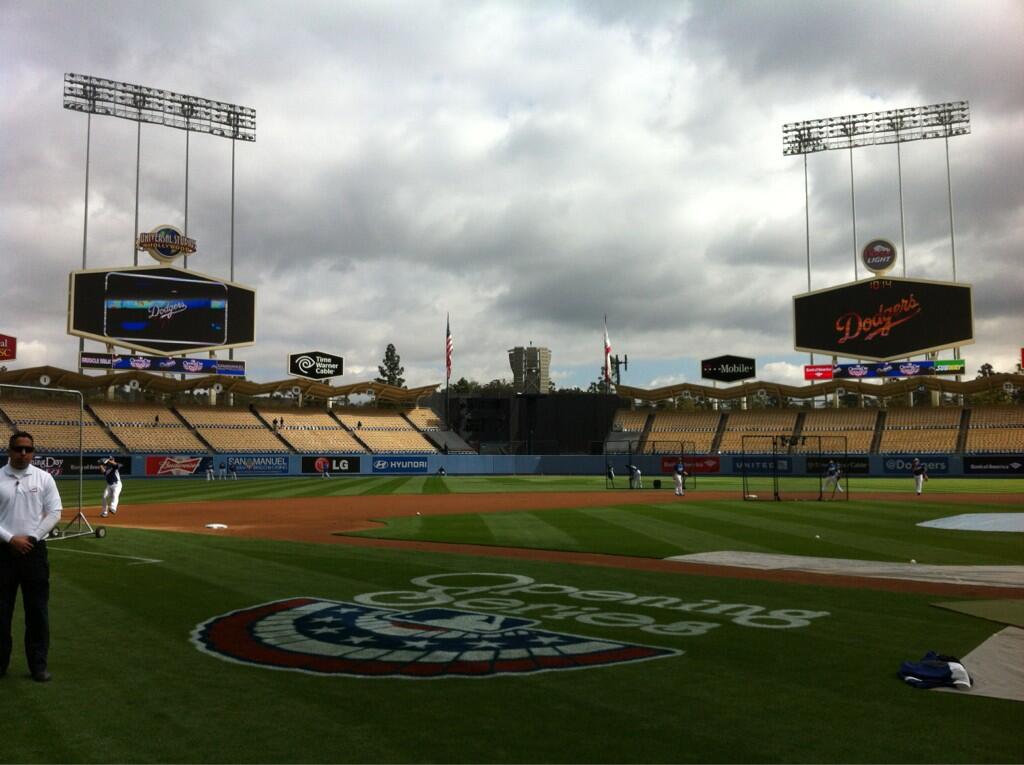
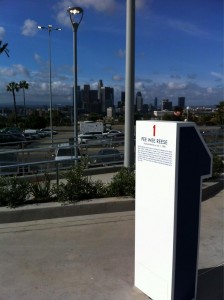
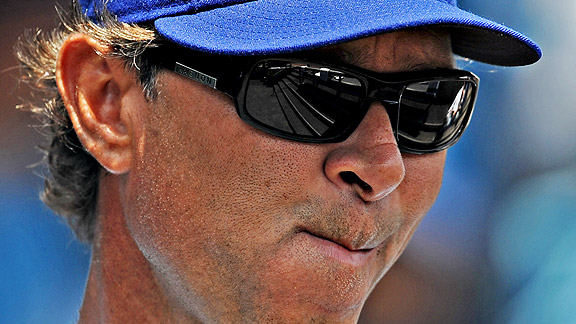
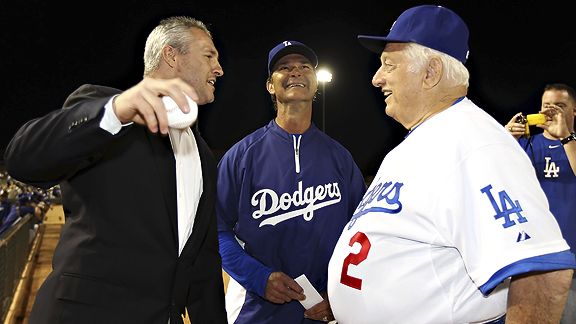
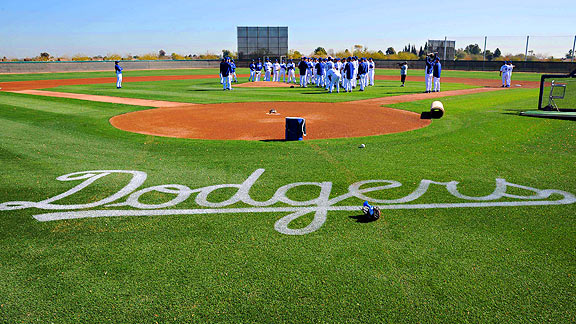 Kirby Lee/US PresswireYou’ve come to the right place.
Kirby Lee/US PresswireYou’ve come to the right place.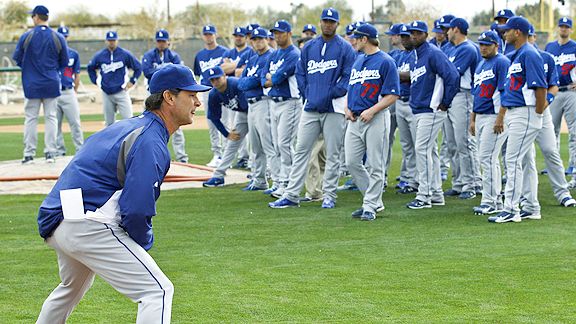

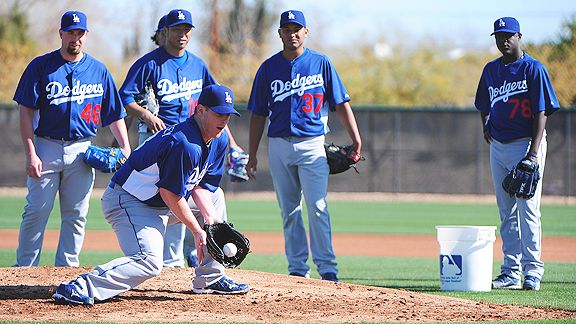 Kyle Terada/US PresswireChad Billingsley is digging fielding practice today at Camelback Ranch.
Kyle Terada/US PresswireChad Billingsley is digging fielding practice today at Camelback Ranch.